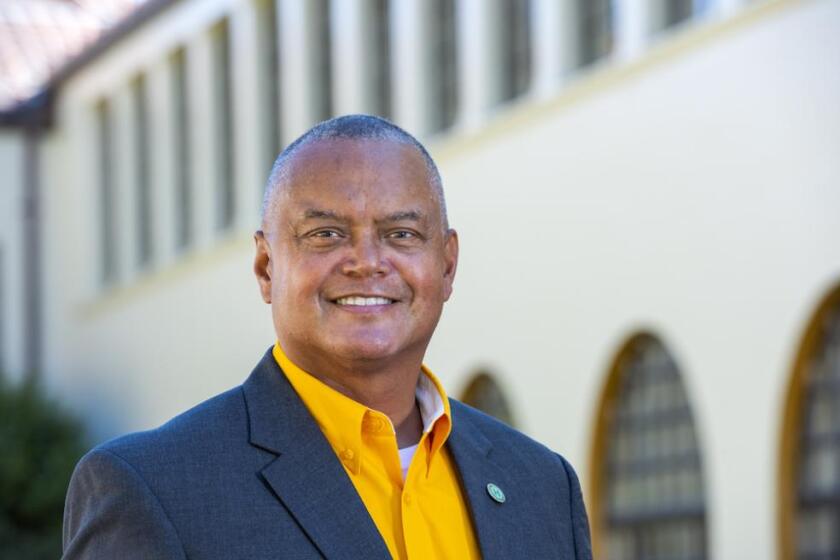An Advocate for All Her Children
Thirty years ago, Patricia Siegel was just another young mother desperately seeking quality child care for her toddler son.
She found it while sitting on a park bench in San Francisco’s Golden Gate Park, swapping horror stories with other mothers as they watched their children play. The complaints were always the same, Siegel recalls: There were no good care options for children under age 3.
Why not, Siegel asked, form our own child care cooperative?
So was born the Yellow Garage, a day-care center that parents supported by donating their time to help run it. But the Yellow Garage did more than solve Siegel’s immediate problem. It propelled her into a career of advocacy for quality child care.
Shortly after starting the co-op, Siegel found herself taking calls from other parents looking for safe child care and complaining that there was no one place they could call to find out what was available. She and some friends applied for a grant to start the Child Care Switchboard, which provided information to parents about San Francisco child care options.
In 1976, Siegel’s switchboard became the model for a state-funded child care resource and referral network. The Department of Education began funding county agencies to provide parents with child care information.
Today there are 61 such agencies, 10 in Los Angeles County alone. The system has helped hundreds of thousands of California parents and has been copied nationwide.
As executive director of the nonprofit California Child Care Resources and Referral Network, Siegel provides training and resources to the county agencies, and collects annual data from them on the quality, quantity and affordability of child care in each county. She oversees a staff of 23 and an annual budget of $3 million.
Even as she has helped build the state’s child care bureaucracy, Siegel has maintained a reputation among child care advocates as a hard-hitting lobbyist and an innovator.
“She has really helped to lay the groundwork for much of the child care system in America today,” said Helen Blank, director of Child Care and Development for the Washington, D.C.-based Children’s Defense Fund.
Movie director Rob Reiner said it seemed natural for him to turn to Siegel for help when he launched his campaign for Proposition 10 last year. The law, passed by a narrow margin in November, is expected to generate more than $600 million a year from a cigarette tax for counties to spend on the very young.
“Patty is like an Earth mother,” Reiner said. “She brings passion and commitment and a tirelessness to the cause that is embarrassing to me. I’ve never seen anybody so tireless.”
The 54-year-old Siegel was named, along with Reiner, as one of seven state commissioners charged with setting policy for spending the funds generated by Proposition 10. Siegel says she is losing sleep worrying over how to make it work.
“I’ve started things before, but this gives me a wake-up call at 4 a.m. many mornings, with both apprehension and enthusiasm,” she said. “ We are under such public scrutiny that it is kind of frightening.”
Siegel has gotten into public spats with some of the commissioners over staffing and other issues, but one of them, Dr. Louis Vismara, says that even when he’s arguing with her, he can’t help but admire Siegel.
“She’s very intense, very passionate, very committed,” Vismara said. “She is tenacious and she perseveres. I could not think of any better advocate that the children of California could have than Patty.”
Siegel never intended to become that advocate. At UC Davis in the early 1960s, she studied French, hoping to parlay fluency in a foreign language into a diplomatic career.
Reared in a Catholic, conservative family in Oakland, Siegel became politically radicalized in college by the civil rights movement and by Sandy Siegel, an activist she met at Davis who became her husband.
The pair joined the Student Nonviolent Coordinating Committee and Students for a Democratic Society. They demonstrated together against racial discrimination and the Vietnam War, and on behalf of farm workers.
They were living in San Francisco in 1972. Patricia Siegel was teaching French part time and caring for their toddler, Toby, when she got the idea of forming a child care cooperative. At first it was “a bunch of hippie women” caring for 10 children. But as word spread, parents began calling for help.
“I would keep a running list” in a recipe box, Siegel recalled. “When there were enough names, I would help people start up a new play group.”
By 1973, she landed a grant to fund a child care referral service.
From that grew an effort to document the supply of licensed child care in the city. It also led to a lawsuit that Siegel and others filed against the state, alleging discrimination because child care providers could get licenses only if they spoke English. The suit was settled, and non-English speakers were allowed to get licenses.
Even as she has watched child care grow into a hot political issue, she chafes about how much more needs to be done. She frets that Gov. Gray Davis may see Proposition 10 money as an excuse to pull funds from existing programs.
Across the state, she says, there is a chronic shortage of child care workers, a chronic shortage of clean, safe child care centers, long waiting lists for subsidized child care, and an acute shortage of licensed child care for children under age 2, even as welfare reform pushes mothers into the work force.
“There are still many miles to go before I sleep,” she said. At the moment, she is lobbying legislators in Sacramento to spend some of the expected budget surplus on child care, particularly on training and supporting child care workers.
Her dream, Siegel says, remains persuading government and the public to fund affordable child care “for all eligible families in the state,” something she estimates would cost as much as $4 billion a year.
“We need a master plan for child care, something that addresses services, training, compensation and a career ladder,” she said. “I still believe we’ll see it in my lifetime.”
More to Read
Start your day right
Sign up for Essential California for news, features and recommendations from the L.A. Times and beyond in your inbox six days a week.
You may occasionally receive promotional content from the Los Angeles Times.






